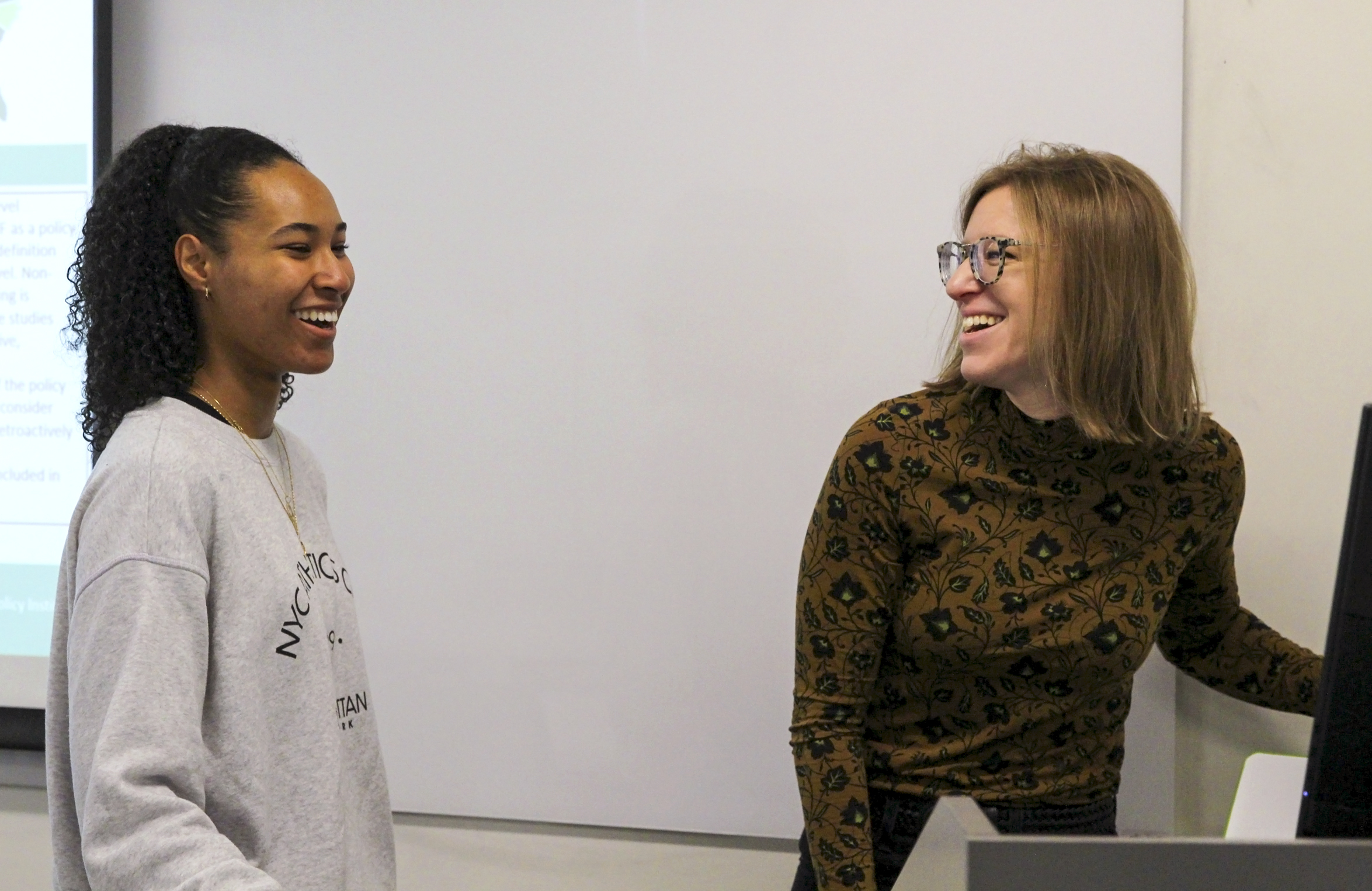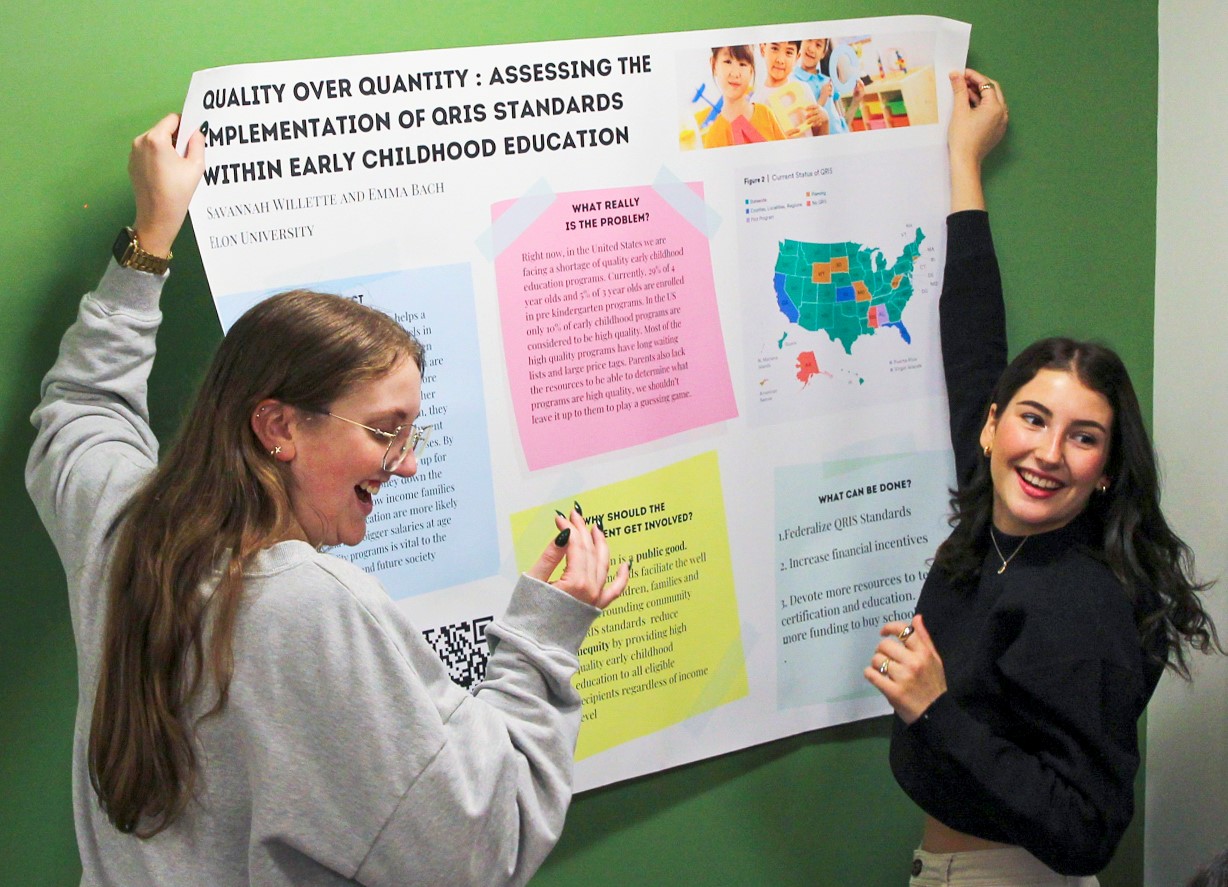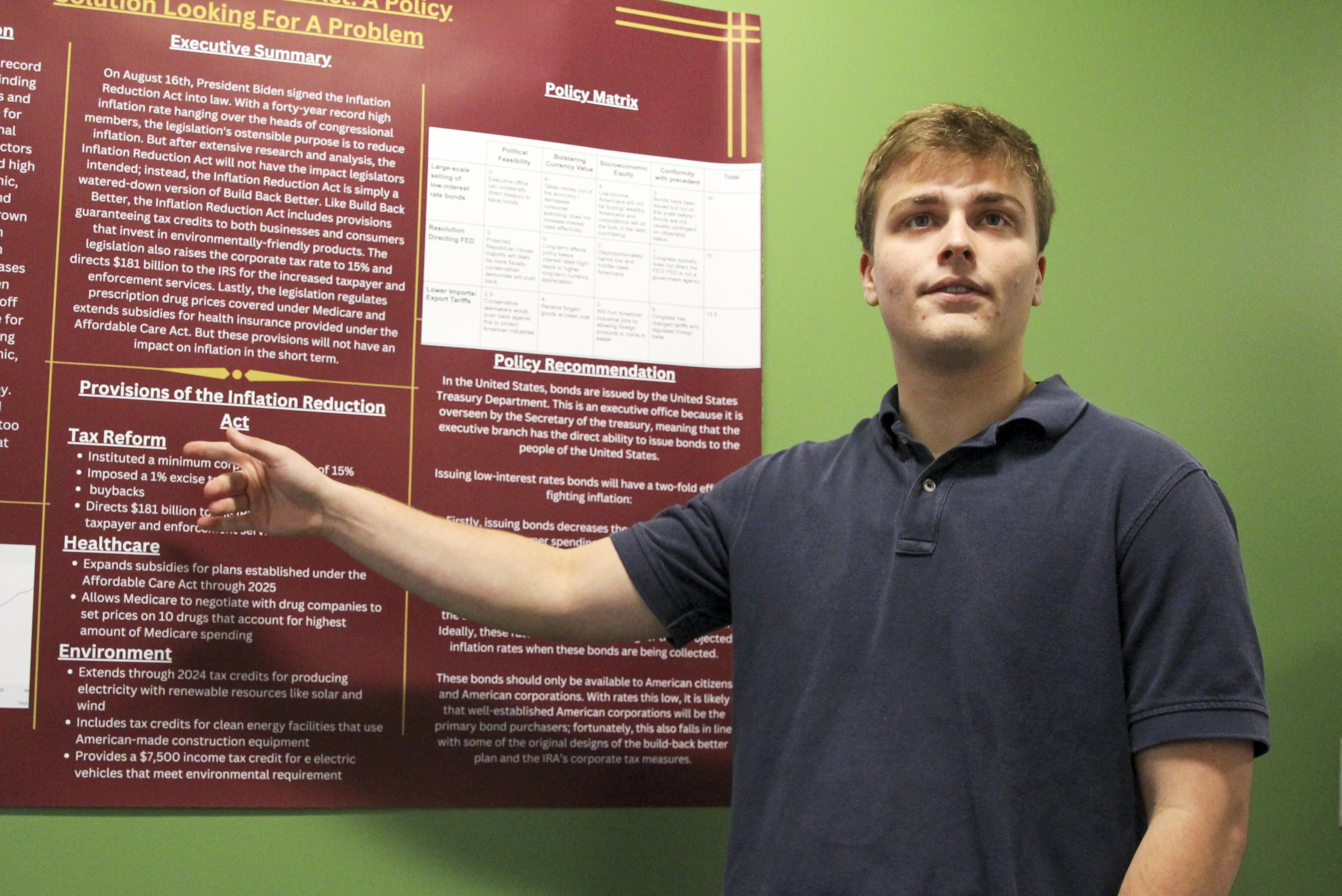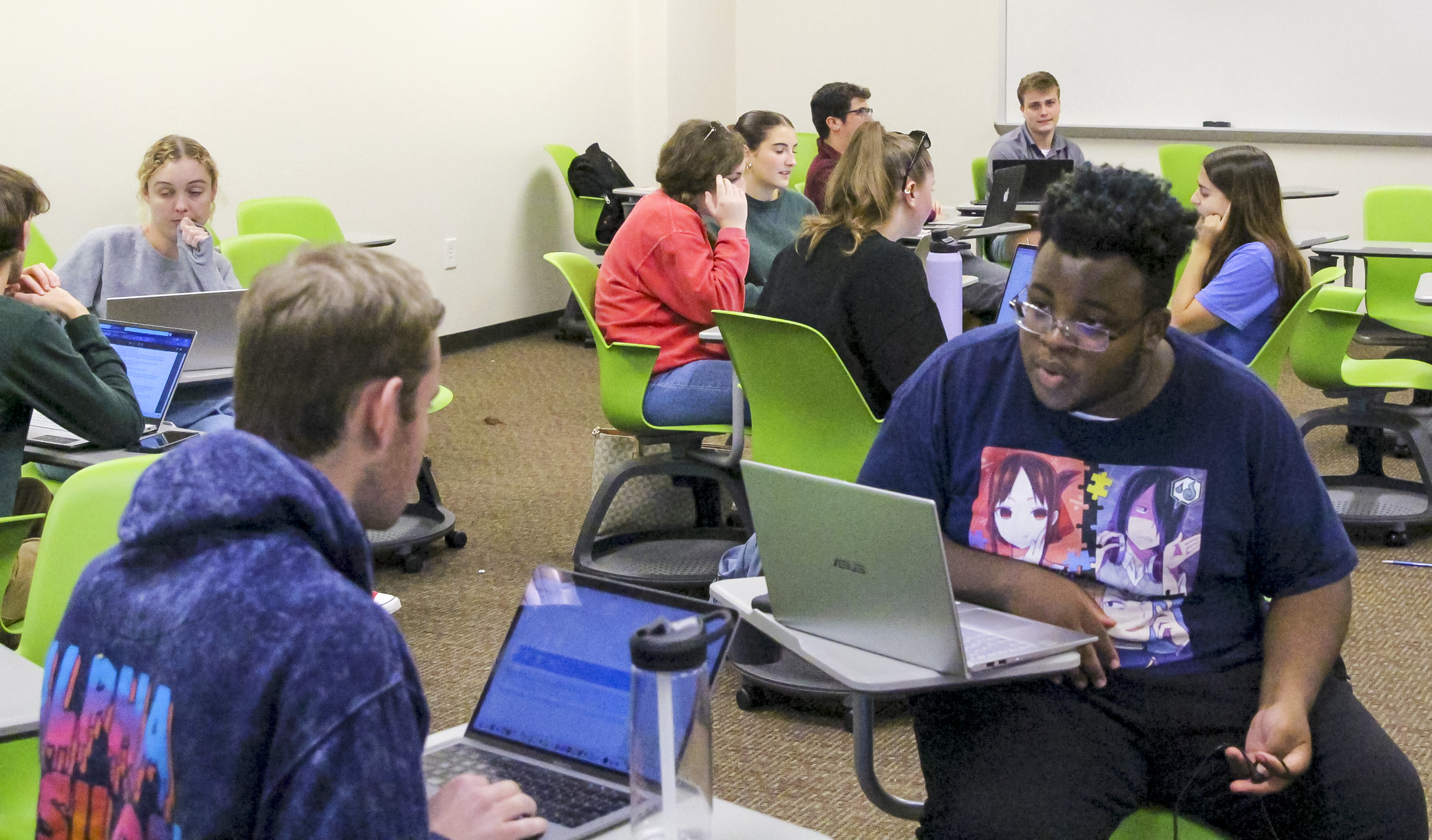The think tank published its first policy research pieces this winter after a collaboration between Amaya Gaines ’23 and her mentor, Assistant Professor of Political Science and Policy Studies Dillan Bono-Lunn.
What began as a student’s idea to amplify Elon undergraduates’ public policy research is now a for-credit course and new student-led think tank exploring wide-ranging government policy.
The Phoenix Policy Institute at Elon University published its first policy reviews in fall 2022. Under the mentorship of Assistant Professor of Policy Studies Dillan Bono-Lunn, students in the PST 3700 Public Policy Think Tank course devised the think tank’s mission — as a non-partisan organization producing evidence-based policy research at all levels of government — and structure going forward.

“This is really about shining a light on research Elon students are already doing,” Bono-Lunn said. “Students here are producing some fantastic policy analysis. This is a place for them to share that with the wider community.”
The institute’s webpage hosts its first seven policy studies completed by students this semester. They include analyses of the federal Inflation Reduction Act, the effects of states’ right-to-work and labor laws, equity in early childhood education, Internal Revenue Service funding and reform, and campaign finance laws.
In 2021, Lumen Scholar Amaya Gaines ’23 first conceived of a student-run policy think tank as her Leadership Fellows Common Good Initiatives project. She also recognized the value of the Pi Sigma Alpha Undergraduate Journal of Politics, which is currently hosted and edited by students and faculty in Elon’s Department of Political Science and Policy Studies through 2023.
Gaines approached Bono-Lunn, her Lumen Prize research mentor, with her idea. It didn’t take long for her and other faculty to see the potential in creating a policy studies think tank and online journal.
“I wanted the institute so we could create multiple paths for students to engage with policy-making in ways, and in the areas, they are passionate about,” Gaines said.
“Some ideas are just too good to pass up,” Bono-Lunn said.
The student-led think tank puts Elon’s policy studies program in league with peer and aspirant institutions and has the potential to grow into a robust outlet for superior and creative approaches to public policy writing and analysis.
Gaines — double majoring in political science and policy studies and minoring in leadership studies — served as the institute’s director this fall. Katherine McCormick ’23 and Ryan Elad ’25 served as editors. McCormick, also a double major in political science and policy studies, serves on the PSA journal’s editorial board and jumped at the chance to create a similar opportunity for student writing and research around governmental policies.

“This work is applicable to a lot of the careers policy studies majors end up in, like working for think tanks or lobbyists or completing research,” McCormick said. “I think it’s important that we have a way to explore our policy interests and be well-trained in in examining policy. I’m interested in pursuing policy studies in graduate school, and I wanted the opportunity to conduct my own research, examine my own research and take a class that’s focused on original policy material.”
Elad, a political science major, said the collaborative nature of the course broadened his understanding of policy and helped him identify the differences between “good policy and bad policy.”
“I enjoyed writing about policy and suggesting policy proposals and reading other people’s responses, as well as learning about the issues they were interested in and their proposed solutions. It’s given me more knowledge about issues others are invested in and seeing how they wanted to solve them.”
After laying the groundwork this semester, Bono-Lunn is excited about what future students will glean from participating with the Phoenix Policy Institute.

“I hope this is something policy studies students will always have and know that they have this opportunity for experiential learning, but also something that brings in students outside of the department,” Bono-Lunn said. “I look forward to it being a well-oiled machine where you have this existing institutional knowledge from students who’ve been involved every semester and they are sharing that with students who are new to it.”
Gaines envisions future semesters’ output to include submitted policy analyses from students in various disciplines and majors. She hopes that the think tank will ramp up interaction with the campus community as well as local communities beyond campus to encourage a broad exchange of ideas and effect change.
“We want to be prepared as global leaders and thinkers, but we can really act locally through something like this think tank,” Gaines said, “to not only put knowledge into practice, but to build relationships with the broader community through partnerships that transcend the ‘Elon bubble’ we always talk about.”



